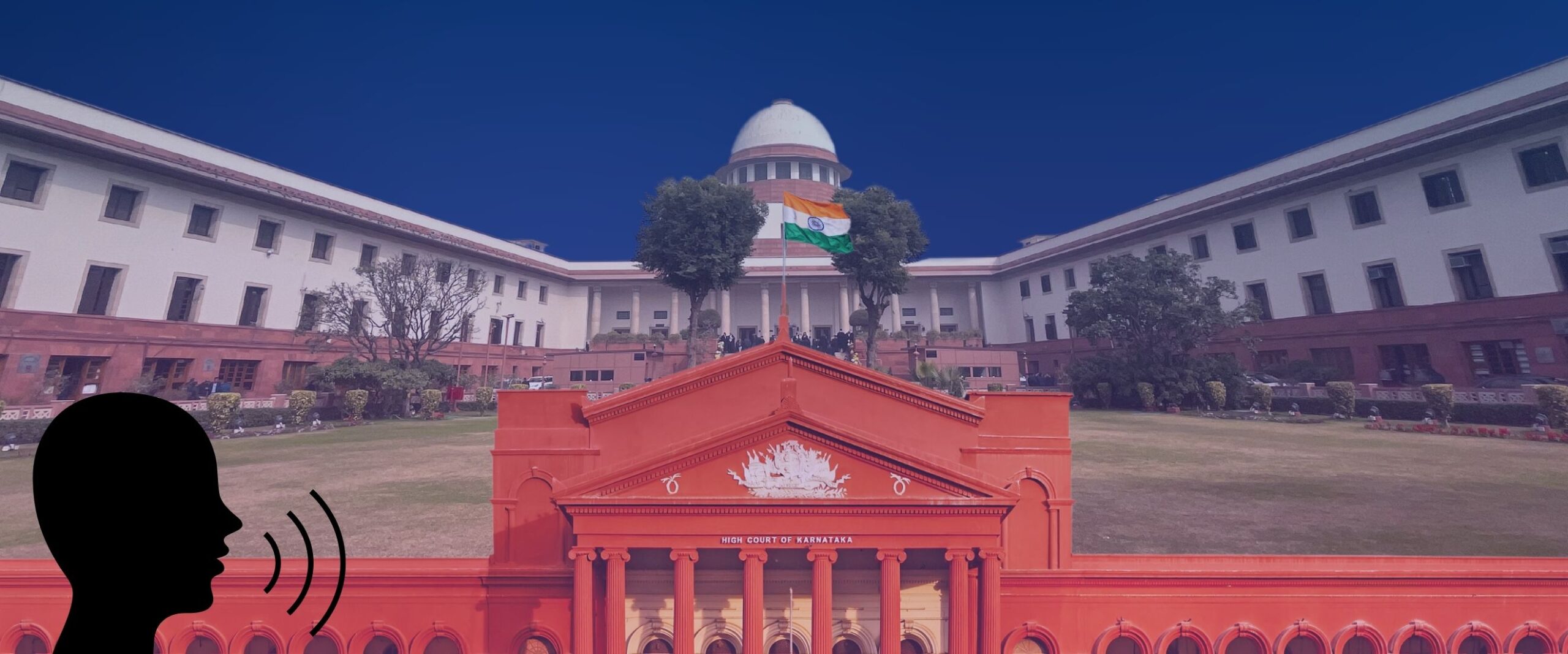Analysis
Supreme Court accepts Justice Srishananda’s ‘unconditional’ apology, dismisses suo moto case
The court noted that judges had to be aware of their predispositions to deliver fair and objective decisions

In re: Remarks by High Court judge during court proceedings
“The only values which must guide judicial decision-making are those which are enshrined in the Constitution of India,” Chief Justice D.Y. Chandrachud said while dictating the order in a suo moto case against the controversial remarks made by Justice V. Srishananda of the Karnataka High Court.
The Supreme Court had taken up suo moto cognisance of the case last week on 20 September 2024. A Special Bench comprising the Chief and four other senior judges of the top court—Justices Sanjiv Khanna, B.R. Gavai, Surya Kant and Hrishikesh Roy heard the case for the first time the same day. The bench had directed the Karnataka High Court’s Registrar General to submit a detailed report of the Judge’s conduct.
Today, the bench reviewed the report and decided to close the case in light of Justice V Srishananda’s apology for his remarks. Attorney General R. Venkataramani said: “I have seen the clippings myself…I am wondering if this can be an in-house proceeding.” Solicitor General Tushar Mehta added that he does not see “any reason to stretch” the matter any further.
Though the bench closed the case, they chose to put their observations on the conduct of judicial proceedings on record.
Why did the Supreme Court take Suo Moto cognisance of Justice Srishananda’s comments?
The Supreme Court’s suo moto cognisance comes in light of two video clippings of Justice Srishananda’s courtroom which went viral on social media.
In the first clipping from 6 June 2024, the High Court judge was seen referring to a locality in Bengaluru with a Muslim majority population as “Pakistan.” In the second clip from 28 August 2024, he was seen making “objectionable remarks” against a woman advocate appearing before him.
The two clips invited strong criticism from the public for being derogatory and discriminatory and for having a detrimental effect on the authority of the court. Several members of the Bar including Senior Advocate Indira Jaising took to X (formerly Twitter) to express disappointment with the Judge’s conduct. “We call upon the Chief Justice of India to take suo moto action against this judge and send him for gender sensitisation training,” Jaising tweeted on 19 September 2024.
The top court took suo moto cognisance of the case the very next day.
Justice Srishananda’s apology
On 21 September, Justice Srishananda apologised for his remarks in open court before members of the Advocates’ Association Bengaluru and several other office bearers of the Karnataka High Court.
His comment stated that the remarks were shared out of context. He also expressed his “sincere regrets if his observations had hurt any individual and any section or community of the society.”
The previous day, on 20 September, members of the Karnataka Bar Association had written to the Chief Justice of Karnataka. Even as the letter acknowledged that the issue brought “to focus the larger issue of treatment to younger members of the bar,” it requested that livestreaming of court proceedings be stopped.
“The Advocates Association Bangalore requests that till such time until there is sensitisation on views that could be aired in open courts, there should be total stoppage of live streaming for such courts. Otherwise, the situation would aggravate and the image in public of courts would be totally damaged,” they wrote.
On 24 September, Justice Hemant Chandanagoudar of the Karnataka High Court passed an interim order restraining the use of livestream clips and uploading of videos of court proceedings on the High Court’s YouTube channel. The Order also directed social media platforms to disallow the posting of such videos.
Bench: Courts have to be careful
The bench today noted that they had “not issued notice” and made Justice Srishananda a party to the proceedings to maintain the dignity of the High Court but stated that they were “deeply concerned” by the comments made. The Chief also remarked that referring to a territory in India as Pakistan was “fundamentally contrary to the territorial integrity of the nation”. However, they would exercise restraint in taking action against these comments.
“The heart and soul of judging is the need to be impartial and fair,” the Chief said. He added that every judge had to be aware of their own prejudices and predispositions because “it is only on the basis of such awareness that we can truly be faithful to the fundamental obligation of the judge to deliver objective and fair justice”.
Towards the end of the proceeding, Venkataramani attempted to nudge the bench to pass a direction to curb the circulation of the video on social media. CJI Chandrachud stated that social media could not be controlled and that suppression of the happenings in a courtroom was not the solution to these incidents. “The answer to sunlight is more sunlight…This is a very important reminder to everyone. The answer is not to close the doors and shut down,” he said.
The bench accepted Justice Srishananda ‘s apology and closed the suo moto proceedings.